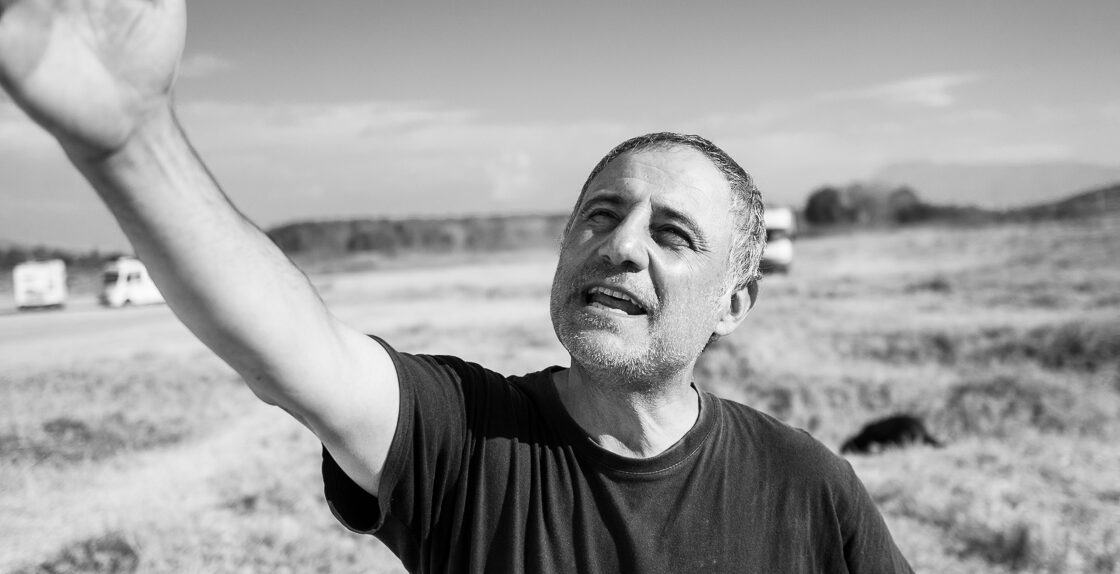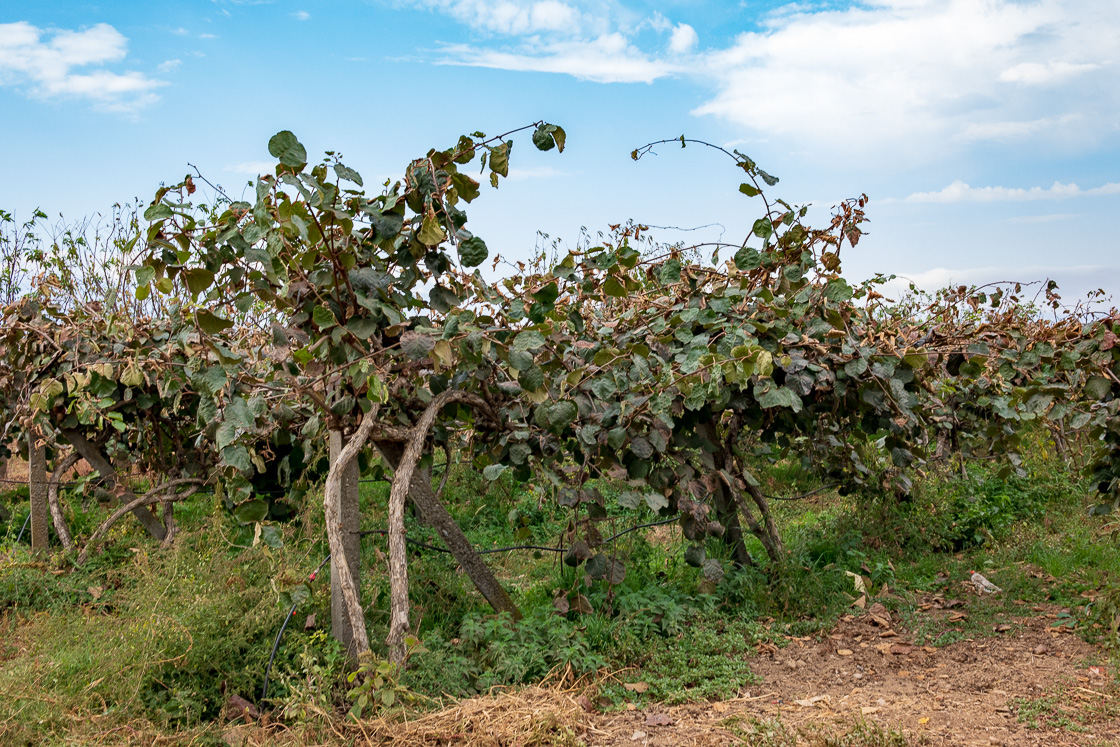November 13, 2018
I rev the engine and slowly release the clutch. The front front wheels spin, throwing up dust into the hot Bulgarian air. Stephen, a Bulgarian retiree with a kind but serious face, pokes his head through the passenger window.
“No good?” I ask.
He shakes his head. “I’ll get some gravel.”
We’re on a farm track just outside Petrich, a small town at the foot of the Belasica mountains situated very close to both the Greek and Macedonian border. The mountains form a beautiful, natural, 360 degree enclosure. I suppose there are worse places to be impeded.
You can’t quite see it from here but just on the other side of the mountain, only a couple of kilometres away, is the source of a hot spring. You can pay for changing rooms, towels and showers in a spa down the road but most locals prefer to bathe for free in the makeshift natural pools. The water is legendary for its healing powers.
It’s the site where I first bumped into Stephen, where he welcomed me to his country with wide open arms and warm friendly smile. That evening, with the moon bright above our heads, our bodies submerged in 40 degree water, we spent hours discussing life, the universe and the state of the nation.
“I have enough,” he says. “Is it great riches? No. But I have enough to eat, enough to travel.”
The next day he has some chores to do in Petrich and he offers to show me around. We visit the market for some fruit and vegetables, then a glass cutter who makes a replacement to fit Steven’s broken wing mirror. The workman becomes animated when he learns I’m from Britain and goes out back to retrieve a glossy brochure.
“Buckingham palace, Windsor castle.” He points at the places he has visited in the guide book.
“My son works here,” he says proudly. I tell him we call it The Gherkin and he laughs heartily; I think his son will soon learn of this nickname.
Stephen next wants to visit an old friend of the family, a kiwi farmer. We’re ushered into a warm kitchen and offered strong herbal tea. Through strewn newspapers and a sleepy tabby cat, the farmer slides a small booklet across the table. He jabs his finger at the neat cursive script at the bottom of the page.
“I was 15 when caught trying to cross the border. This record will never be forgotten. It has followed me my whole life.”
He explains how lucky he was that he was not one year older.
“I would have been imprisoned. Or worse… At least I kept my freedom.”
Despite this most frightening of starts to his life he’s managed to fashion a successful life for himself. He proudly shows us his farm: row upon row of kiwi trees for as far as the eye can see. Before leaving he bestows on us a huge crate of his yield.
Stephen looked pleased. I guess he managed to tick off all his jobs for the day, show me a little bit of Bulgarian life, and introduce me to some of his friends. But after this long day of pottering around the town it was now time to get back to the hot spring.
I rev the engine and slowly release the clutch. The front wheels spin, throwing up dust into the hot Bulgarian air.
We’re not going anywhere.
We all stand round scratching our heads, Stephen, the farmer and I. Having tried gravel and wood and pushing and shoving, we’re out of ideas.
The sound of a vehicle crawling down the dirt track lifts us. It’s the farmer’s neighbour and he jumps out to add his shoulder to the effort. One, two, three, push. The wheels spin. No traction. The van rocks back, and then suddenly I feel the weight shift forward; I’m free, up and out of the furrow I’d managed to dig for myself.
“A typical Bulgarian day,” says Stephen. “Nothing ever goes smoothly but then the people rally round to help.”
Back at the camp, as we say our goodbyes, Stephen is telling me his plans for the rest of the Autumn. His big brown eyes are full of life; he is gesticulating with arms open wide, as if to embrace the universe.
“I don’t have much,” he says, “but I have enough.”
“And,” he adds emphatically, “I am free.”








